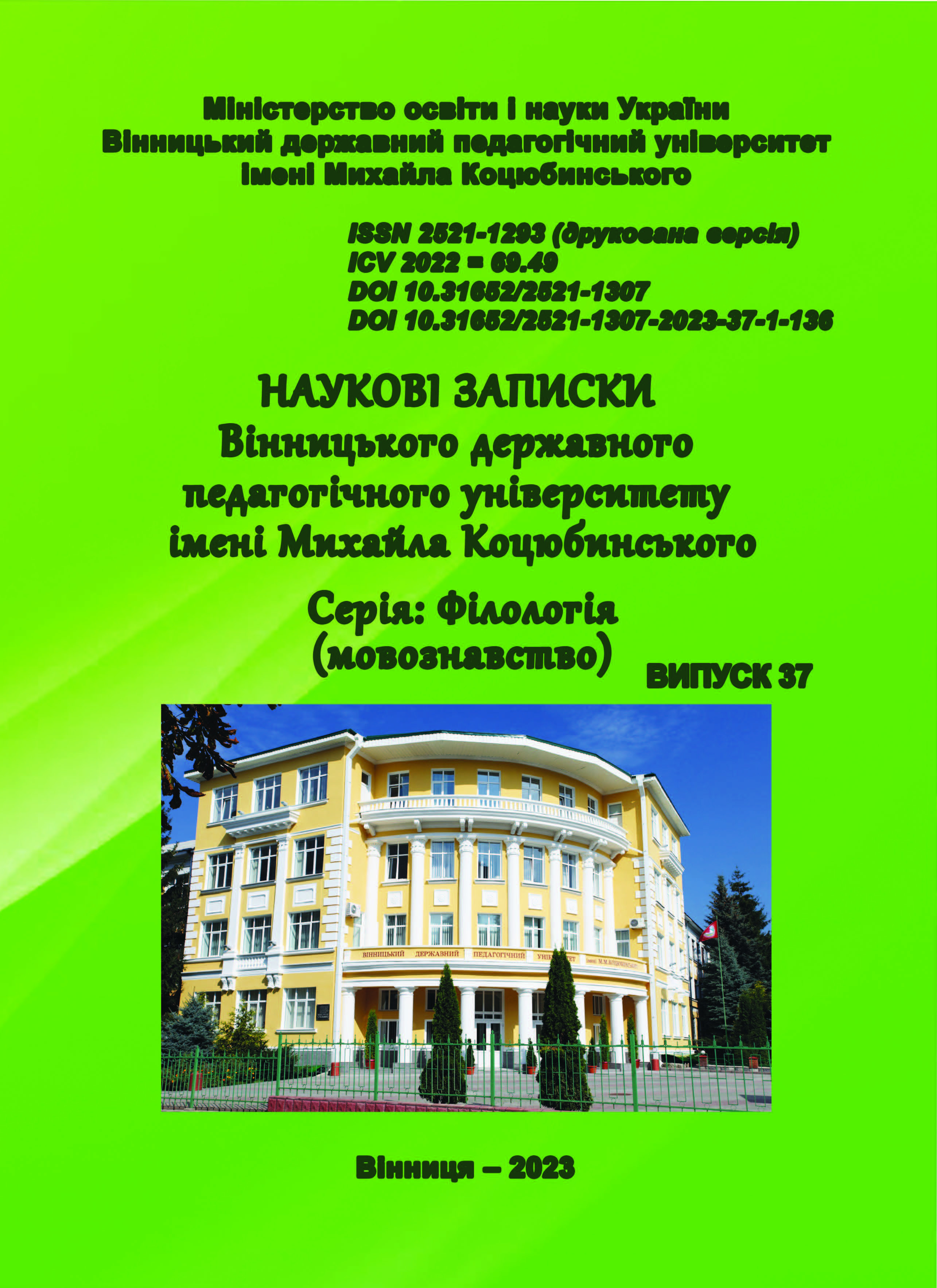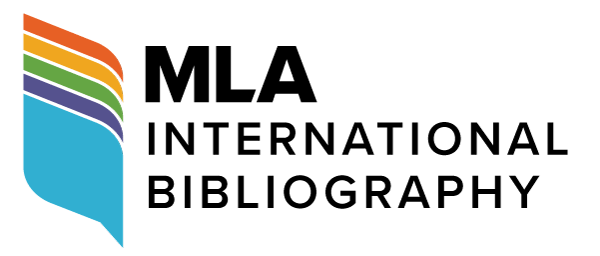Communicative-pragmatic potential of speech acts of glorification in semantic-textual linguistic expertise
DOI:
https://doi.org/10.31652/2521-1307-2023-37-17-25Keywords:
intention, speech act, communicative situation, communicative and pragmatic potential, glorificationAbstract
Introduction. The article analyzes the speech acts that express the communicative intention of glorification in the discourse texts of social networks. Attention is focused on the definition of the concept of «glorification» as a term of Ukrainian legislation. This concept is common in modern semantic-textual linguistic expert research. Definitions according to explanatory dictionaries of the Ukrainian language are presented and glorification is characterized as a manifestation of the semantic-grammatical category of assessment. It is proved that the intention of glorification actualizes the communicative and pragmatic potential of speech acts of positive evaluation.
Purpose. The purpose of the study is to define the concept of glorification and distinguish speech acts in which the intention of glorification is realized. The goal determined the following tasks: to define the concept of «glorification» according to explanatory dictionaries of the Ukrainian language; to characterize glorification within the semantic-grammatical category of assessment; to single out the main speech acts that are a consequence of the realization of the intention of glorification.
Methods. Linguopragmatic analysis was used to identify intentions and speech acts of glorification. Discourse-analysis was used to characterize the features of communicative behavior of the speaker and addressees. Functional-categorical analysis was used to outline signs of glorification as one of the manifestations of positive evaluation. The analysis of dictionary definitions and component analysis ware used to find out the meaning of the lexeme «glorification» in the modern Ukrainian language.
Results. We interpret glorification within the semantic-grammatical category of evaluation, namely as a manifestation of positive evaluation, which involves the qualification of the main speech acts of its implementation. In the modern semantic-textual examination of speech, it is necessary to take into account two vectors of the implementation of the evaluation category – positively evaluative and negative evaluative values expressed in the text. Speech acts of glorification express a positive assessment of varying degrees of intensity using various speech acts; however, the communicative intention of the speaker in this case is always directed to a positive assessment of the highest degree. According to the traditional approach, evaluative speech acts were assigned to expressives that express the speaker's internal psychological state, in particular, his emotional tension, attitude to the situation and the interlocutor, emotional reaction to events, etc. Expressives also include expressions of evaluation – both positive and negative.
Originality. We include the following types of speech acts of positive evaluation subordinated to the expression of the intention of glorification. 1. Glorification is a speech act of expressing the highest positive assessment of the subject's actions with the affiliation of this subject to ideals worthy of imitation. The communicative intention of the speaker in this case is to give the highest positive evaluation to the actions of a certain subject. Speech acts glorifying the aggressor are characterized by a corresponding theme: a positive assessment of the actions of the military personnel of the aggressor country and the expression of a positive attitude towards their actions during the armed aggression against Ukraine. 2. Praise is a speech act, the communicative intention of which indicates sincere approval, a positive and evaluative attitude towards the object of assessment. First of all, praise is a manifestation of the speaker's positive and evaluative attitude towards a specific person, that is, it is directed at the subject. If the speech acts of praise are intentionally directed to certain actions, then praise does not refer to actions, but to a person. 3. Gratitude is a speech act of a positive reaction to a person's actions: the addressee expresses gratitude to the addressee for actions that the addressee considers useful for himself. Thanks as a ritual speech act does not have a clear direction towards glorification, but the use of this speech act to realize the intention of glorifying the aggressors and the military of the Russian Federation in the public space actualizes its communicative and pragmatic potential precisely as the realization of glorification.
Conclusion. The concept of glorification gained relevance with the beginning of the full- scale invasion of the Russian Federation in Ukraine as a term of the Criminal Code, which is common in requests for semantic-textual linguistic examination. The interpretation of this concept involves taking into account the actual semantic aspect and the linguopragmatic aspect. At the semantic level, the lexeme «glorification» has the meaning as a derivative of the verb «glorify», which is semantically identical to the verb «glorify». Glorification means «glorifying, praising, creating greatness». The linguistic-pragmatic aspect involves taking into account the communicative and pragmatic potential of speech acts subject to the expression of the intention of glorification. The concept of glorification in the semantic-textual linguistic examination is a manifestation of the semantic-grammatical category of evaluation, which implies its qualification taking into account semantic and pragmatic criteria. The main speech acts in which glorification is realized are the speech acts of expressing a positive assessment – glorification, praise and thanks.
References
Бігунова Н. О. Позитивна оцінка як засіб маніпуляції співрозмовником (на матеріалі англомовного літературного художнього дискурсу). Науковий вісник Херсонського державного університету. 2019. Вип. 2. С. 12–18.
Бігунова Н. О. Позитивна оцінка: від когнітивного судження до комунікативного висловлювання. Одеса: КМ ОМД, 2017. 580 с.
Браїлко Ю. І., Кисла Н. В. Проблемні аспекти лінгвістичних досліджень у кримінальних провадженнях стосовно глорифікації учасників збройної агресії Російської федерації проти України. Криміналістика і судова експертиза. 2023. Вип. 68. С. 302–312.
Закон України «Про внесення змін до деяких законодавчих актів України щодо посилення кримінальної відповідальності за виготовлення та поширення забороненої інформаційної продукції». URL: https://zakon.rada.gov.ua/laws/show/2110-20#Text (дата звернення 28.09.2023).
Ківенко І. О. Мовленнєвий акт подяки: прагмалінгвістичний аналіз (на матеріалі англійської мови): дис. канд. філол. наук. Одеса, 2018. 226 с.
Компанцева Л. Ф. Лінгвістична експертиза соціальних мереж в умовах гібридних викликів національній безпеці України. Актуальні проблеми української лінгвістики: теорія і практика. 2020. № 40. С. 119–139. https://doi.org/10.17721/APULTP.2020.40.119-139 DOI: https://doi.org/10.17721/APULTP.2020.40.119-139
Олєйніков Д., Сердечна А. Науково-практичний аналіз термінів, використаних в диспозиції ст. 436-2 КК України. Науковий вісник Ужгородського національного університету. Серія: Право. 2022. Вип. 74, ч. 2. С. 110–118.
Паламар Н. І. Місце мовленнєвого акту похвала серед оцінних мовленнєвих актів. Іноземна філологія. 2015. Вип. 128. С. 3–8.
Приходько Г. І. Оцінні мовленнєві акти в типології мовленнєвих актів. Науковий журнал Львівського державного університету безпеки життєдіяльності «Львівський філологічний часопис». 2017. Вип. 1. С. 71–74.
Сидоренко О., Бондаренко О., Сипченко І. Лінгвістична інтерпретація юридичної термінології в семантико-текстуальних дослідженнях. Філологічні трактати. 2022. Т. 14, № 2. С. 105–115.
Словник української мови в 11 томах. Київ: Наукова думка, 1970–1980.
Словник української мови в 11 томах. Додатковий том: у 2-х книгах / Гол. ред. П. Ю. Гриценко. Кн. 1. А–Л. Київ: Видавничий дім Дмитра Бураго, 2017. 556 с.
Шевченко Л. І.. Сиизонов Д. Ю. Лінгвістична експертиза: підручник / За заг ред. Л. І. Шевченко. Київ: ВПЦ «Київський університет», 2021. 244 с.
Шинкарьов Ю. В., Коваленко О. О. Правова характеристика поняття «глорифікація» як форми об’єктивної сторони складу кримінального правопорушення, передбаченого ст. 436-2 Кримінального кодексу України. Збірник наукових праць Харківського національного педагогічного університету імені Г. С. Сковороди. Серія «Право». 2022. Вип. 36. С. 23–30. https://doi.org/10.34142/23121661.2022.36.03 DOI: https://doi.org/10.34142/23121661.2022.36.03
Downloads
Published
Issue
Section
License
Copyright (c) 2023 Наталія Кондратенко

This work is licensed under a Creative Commons Attribution 4.0 International License.








